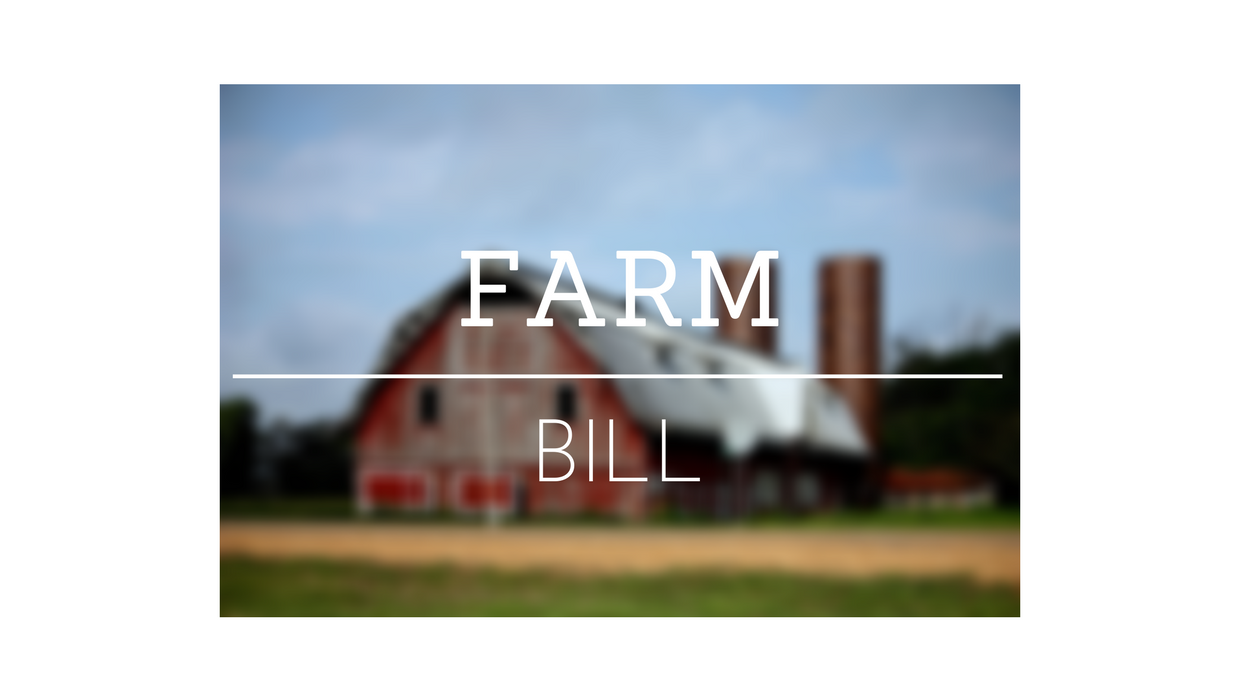After days of speculation in Washington that President Donald Trump was planning on issuing a threat of a veto of the proposed 2018 farm bill if substantial cuts weren’t made, Senate Agriculture Committee Chairman Pat Roberts said, after a May 10 meeting with Trump, a veto wasn’t likely.
“The good news is, the president really wants a farm bill. It was a good meeting.” Roberts said in a statement to High Plains Journal.
Roberts, along with House Agriculture Committee Chairman Mike Conaway, R-TX, and Secretary of Agriculture Sonny Perdue, met with Trump around 2 p.m. Eastern time May 10.
Washington media has been abuzz the last week that Trump would veto any bill that was not similar to the proposed House version of the bill, which includes deep cuts in the Supplemental Nutrition Assistance Program along with a work or job training requirement.
Roberts, along with Ranking Member Debbie Stabenow, D-MI, have repeatedly said they are committed to writing a bipartisan bill that would exclude the House Agriculture Committee’s SNAP provisions. The bill would need at least 60 votes to pass the Senate and there are only 51 Republicans.
Roberts told reporters he didn’t expect Trump to make a veto threat on Thursday. ”We have not heard any report or any comment from anybody we’re dealing with in the White House” about that, he said. “Farmers need certainty and predictability and they need a bill,” said Roberts in a report May 9 by The Wall Street Journal.
In that report, it was said that Trump was planning to tell Roberts and Conaway that he will veto the farm bill unless the legislation includes stricter work requirements for people in the Supplemental Nutrition Assistance Program benefits.
“Regardless of any comments, I think it’s way premature … I don’t expect to hear a veto threat,” Roberts told the respected Washington daily The Hill May 9. “We have not heard from the administration and the people that we’re working with, who are the usual folks that do the policy discussions, and there’s been no comment on that.”
In comments submitted by his Washington office, House Agriculture Committee chairman Mike Conaway, R-TX, said about his meeting with Trump, “Well, it went really well. The president is very smart and it became crystal clear right off the bat though that he has a real heart for the folks living in rural America, the folks in production agriculture, the men and women who grow the food that we eat and the fabric that we use to wear in our clothes. He wants to help them and he said that multiple times.
“He’s also a really strong proponent of the work requirements being improved in SNAP, strengthening SNAP because he believes that work is a pathway to prosperity and that our program should help people get on that path and not trap them in some sort of public assistance program. So good meeting with the president and covered a lot of things that he had on his mind: trade, some other kinds of things. He understands that there’s some turmoil in rural America as a result of some trade things going on but also understands that a good farm bill done on time would go a long way toward helping putting a little oil in the water in rural America.”
But did Trump say he’d veto the farm bill as the House Agriculture Committee presents it?
“No, he didn’t, we didn’t go to that level. I just asked him for help getting my bill passed. Senator Roberts was in the meeting. He had conversation with him about what his bill might look like, but a little premature for that issue. We want to make sure what we can get out of the House that it’s supportive and he’s supportive of it. I asked him to use his prodigious social media array to help promote getting it out of the House and hopefully he will do that.”
The House Rules Committee set a May 11 deadline for posting of amendments to the Conaway bill. As of the deadline, 98 amendments were posted. Many were amendments that would directly assist citizens in members’ districts, such as an amendment by Rep. Scott Tipton, R-CO, authorizing the U.S. Forest Service to give 3.61 acres of Forest Service land to Dolores County, Colorado, for the “strict purpose” of building a fire station. These likely will be dealt with en banc, or grouped together for a single, likely voice, vote.
A few will be contentious, requiring the Rules Committee to hammer out time for opposing views, even within Republican Party ranks. Such amendments include:
—An amendment by Reps. Virginia Foxx, R-NC; Danny Davis, D-IL; Bill Shuster, R-PA; Earl Blumenauer, D-OR; Steve Chabot, R-OH; Jackie Speier, D-CA; Lou Barletta, R-PA; and Ron Kind, D-WI; to reform the sugar program by removing domestic marketing controls and implementing market reforms that would likely reduce U.S. sugar prices. Critics say this amendment would virtually kill the program.
—Blumenauer, along with Rep. Dave Brat, R-VA, have an amendment to require that a checkoff board or its employees or agents acting in their official capacity may not engage in any act that may involve a conflict of interest, anti-competitive activity, unfair or deceptive act or practice, or act that may be disparaging to, or in any way negatively portray, another agricultural commodity or product. The bill primarily targets the Cattlemen’s Beef Board and how it funds programs toward the National Cattlemen’s Beef Association for beef promotion efforts.
—Several amendments would try to shrink the size of the Federal Crop Insurance program. One such amendment, by Kind along with Rep. Mark Sanford, R-SC, would lower the profit margin that crop insurance companies are guaranteed referred to as the “target rate” of return from 14.5 percent to 12 percent.
—Kind, along with Rep. Jim Sensenbrenner, R-WI, has another amendment to allow for public disclosures of crops insurance premium subsidies.
—Kind and Sensenbrenner, along with Reps. Jared Polis, D-CO, and Keith Rothfus, R-PA, have an amendment that would limit crop insurance subsidies to only those producers that have an Adjusted Gross Income of $500,000 or less.
—Another amendment, by Reps. Earl Blumenauer, D-OR, and Michael Burgess, R-TX, would cap spending on Agriculture Risk Coverage and Price Loss Coverage programs at 110 percent of Congressional Budget Office-predicted levels for fiscal years 2021 through 2025.
The Senate Agriculture, Nutrition and Forestry Committee hasn’t yet released its version of the legislation, though Roberts and Stabenow have said they will pass a bipartisan bill out of committee, rather than a bill passed by House Agriculture Committee colleagues, which had no support from Democrats and may not pass anyway, due to some members who think the bill isn’t conservative enough. Roberts has yet to set a date for the “mark-up” of the Senate version of the bill.
Conaway expressed some optimism about a House vote, saying “Well, we believe we’ll get there. We’ve got several folks that are still ‘reading the bill’ and coming to their own conclusions. We’ve got a lot of undecideds. I’ll be working with them over the weekend to get them to where they need to be, and get whatever information they need to so they’ll understand exactly what the bill does.
“A lot of misinformation in the public arena that we’re working through with various members as to what the bill does and doesn’t do. I believe we’ll be there next week and we’ll have it on the floor.”
Larry Dreiling can be reached at 785-628-1117 or [email protected].


